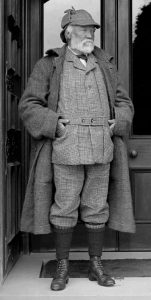Owen Hatherley in The Guardian:
 For the sociologist Eric Klinenberg, a vision of the good city begins in the local library. It’s a place where a huge amount of knowledge is available permanently, free of charge. It’s a computer centre; it’s a place where everyone goes, including the marginalised young and elderly. Security is light-touch – “you rarely see a police officer in the library”. It is adaptable in a crisis. During Hurricane Sandy, a branch library in Staten Island became the place where local people sheltered and where relief was coordinated. In north-west Bangladesh, libraries float on moored boats in flood-prone areas. All this passes almost unnoticed. Libraries are closing across the UK and the US at a scarily rapid rate (nearly 130 have closed in the past year, it was recently revealed). The public library is not, and inherently never can be, a market, and so, Klinenberg writes, “If it didn’t already exist, it’s hard to imagine our society’s leaders inventing it.”
For the sociologist Eric Klinenberg, a vision of the good city begins in the local library. It’s a place where a huge amount of knowledge is available permanently, free of charge. It’s a computer centre; it’s a place where everyone goes, including the marginalised young and elderly. Security is light-touch – “you rarely see a police officer in the library”. It is adaptable in a crisis. During Hurricane Sandy, a branch library in Staten Island became the place where local people sheltered and where relief was coordinated. In north-west Bangladesh, libraries float on moored boats in flood-prone areas. All this passes almost unnoticed. Libraries are closing across the UK and the US at a scarily rapid rate (nearly 130 have closed in the past year, it was recently revealed). The public library is not, and inherently never can be, a market, and so, Klinenberg writes, “If it didn’t already exist, it’s hard to imagine our society’s leaders inventing it.”
Klinenberg, who comes from a similar Chicago community milieu as his friend Barack Obama, has written a paean to libraries, parks, playgrounds and other public spaces, but he is unable to keep the bleaker realities of urban (and, unusually, suburban) life out of his would-be-inspiring “Aren’t Cities great?” narrative. What are clearly meant to be instructive just-so stories and heartwarming anecdotes are often much more grim and upsetting than he seems to think they are. He’s well aware that there is a crisis in the US – he names opioids, housing costs that are now out of control, racial politics that are more tense than ever, collapsing infrastructure and undrinkable water, and inequality that has become insulting: “When millions lost their homes in the foreclosure crisis, the most affluent Americans locked up their spoils, buying ‘safe deposit boxes in the sky’ in soaring urban condominium towers. Those who could afford it went one step further, buying survivalist retreats.” Much of this could equally be said of the UK.
This is about as angry and vehement as the usually cosy world of American liberal urbanism can get. At the heart of the book is that idea of the library or park rather than the market as the real agora, the place where urban life is lived at its best, an example of the “social infrastructure” that could really rebuild America.
More here.
